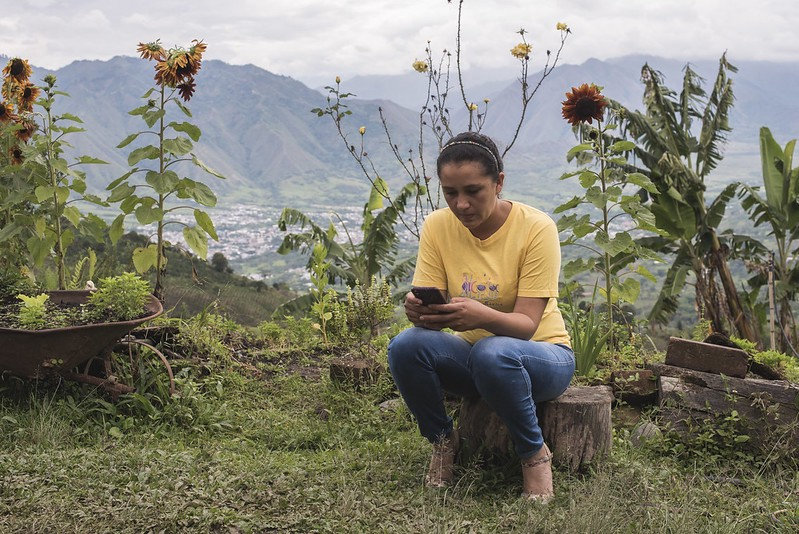Fundación Capital, together with the Institute of Peruvian Studies (IEP), has carried out the Proyecto Capital for more than ten years. The project is a regional scope initiative in Latin America and the Caribbean, and is sponsored by the Ford Foundation and the International Development Research Center (IDRC). This project’s central objective was to promote financial inclusion of Conditional Cash Transfers recipients through digitizing payments and incentivizing formal financial savings.

Photo: Fundacion Capital
The initiative has undoubtedly provided many lessons that, when facing the Covid-19 world crisis, the findings of Proyecto Capital become even more relevant. Our recommendations have been shared below, as well as work experience results in twelve countries within the region to accelerate digitizing payment processes as a means to confront the current humanitarian crisis:
Recommendations for governments:
1- Deliver all transfers through savings account deposits or mobile wallets. To do so, a website where people fill in the information about their savings account or mobile wallet would be necessary to receive their payment. In turn, this information would have to be filtered and verified through official databases.
2- Delivering emergency subsidies should not be conditioned to purchasing specific products, and much less so in predetermined places. Nor is it recommended to deliver products in kind due to the operating costs involved, the complicated logistics and the inefficiencies they generate.
3- All subsidies must be granted through the same account (savings or mobile wallet) chosen by the citizens. This would allow for precisely accumulated amounts that each citizen would receive in transfers.
-
“Know your Client — KYC” for low-cost accounts with less than USD 1,000 balances.
-
Open bank correspondents.
-
Accept electronic payments through small businesses (credit/debit card, mobile money or QR code).
5- Give legal validity to electronic signatures.
6- Eliminate taxes on financial transactions (ITF) as they make better use of an expensive and discouraged financial system.
7- Encourage the creation of strategic alliances between financial institutions through correspondent contracts to increase the capillarity of the financial system.
8- Create regulatory sandboxes that allow financial institutions to experiment on a controlled scale and learn quickly and without regulation being an obstacle.
9- Accelerate the authorization of mobile payment company operations.
10- Subsidize life insurance purchases, ideally provided through electronic channels, for all recipients of conditional cash transfers.
11- Deliver subsidies more efficiently and teach the use of electronic means of payment as essential to assist citizens with relevant and quick information via text and/or voice media (eg. the ChatBot ConHector developed by Fundación Capital) for greater accumulated data use that can be to better understood and serve users.
12- Open a savings account for each child at birth, whose account number is the same as that of their identity card, to not face similar problems in the future.
13- Incorporate financial customer service verification mechanisms and quality control through call centers or chat rooms via WhatsApp, where users can easily and quickly report complaints and claims about the service provided by financial institutions.

Photo: Fundacion Capital
Recommendations for financial institutions:
Give clients an overdraft opportunity for a defined amount and without interest charges, which could be backed by a public guarantee fund.
1- Authorize businesses so that citizens can make cash withdrawals with debit and credit cards. This practice is usually prohibited due to restrictions imposed by credit card companies.
2- Temporarily reduce, or eliminate, fees charged to establishments that use electronic means of payment.
3- Temporarily, or permanently, suspend rental charges from points of sale (POS) used for payments.
4- Eliminate costs associated with balance inquiries made at ATMs.
5- Temporarily, or permanently, eliminate withdrawal charges from other banks’ ATMs. This way, money could be withdrawn from any ATM without having to incur additional costs. It would also reduce the operating costs of financial institutions too.
6- Design a quick action plan for financial service digitization offered.
Recommendations for users:
1- All subsidies would have to be received under commitment agreements to help meet goals aimed at preventing and spreading contamination.
2- Recipients will have to know all obligations and duties regarding digital financial consumers.
3- Users must self-diagnose and monitor their financial standing through quick tests
4- Recipients must permanently seek to improve their digital and financial capacities.
This article was originally published by Fundacion Capital.

